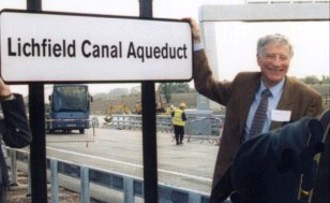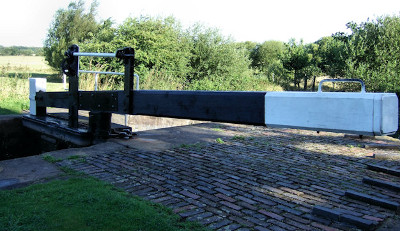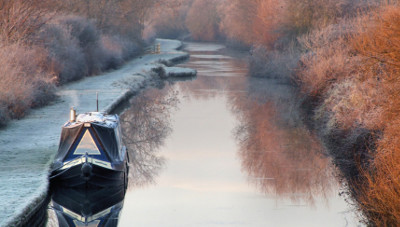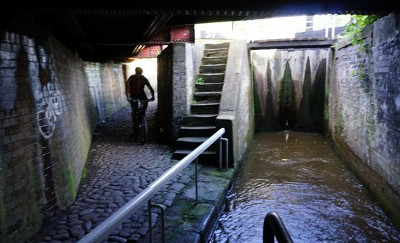WE HAVE great pleasure in giving you the first part of Reflections of an Ancient Boater by Ralph Freeman.
 Early years of the Millennium
Early years of the Millennium
When I retired and chose to live on the Cut, in the early years of this century, things on the Cut were very different. On reflection perhaps the most significant difference was the person in charge of the waterways, one Dr David Fletcher. (Pictured.) Not only was he a qualified engineer with experience in a commercial environment, but maybe more important still, he was a boater with 20 years experience of narrowboat ownership. Somehow this person seems to have been 'airbrushed' out of waterways history. Under whose orders I wonder?
As a long term narrowboat owner Dr David was, in effect, 'one of us'. As such he was likely to spot lies regarding the state of the waterways a mile off. Later CEO's proved to be very much the opposite, some appearing to dislike the waterways themselves and even the folk that live on them. There were to follow periods that came close to 'social cleansing' when attempts were made to gentrify the waterways and remove liveaboards and continuous cruisers, to the benefit of whom was never made clear. Maybe it was just malice, or jealousy; who knows?
 Maintenance
Maintenance
During the early 2000's under Dr David Fletcher, British Waterways had a maintenance blitz, so it was not uncommon to come across a lock that had been totally re-furbished and hopefully fit for another 20+ years of service with just minor touches of TLC in the form of greasing, painting etc. to keep it up to scratch. These minor yet important functions were carried out by lengthsmen or lockies, who had intimate knowledge of 'their' patch and an obvious pride in their work that was clear to see.
Anyone who had used some of the multi-lock flights like Audlem, Atherstone and Curdworth , during that period, cannot fail to have been impressed by the super paintwork, mown grass, tended hedges and even flower boxes, maintained by the local lock keeper.

Peace and Quiet
The adjacent photo shows a type of mooring that was commonly available to boaters in days gone by. You know the sort I mean; a quiet and peaceful mooring out in the sticks. A place where the grass is cropped short by the local rabbit population and you could spend time with a glass of beer watching buzzards fly, a heron fish, a fox on the prowl, or even a deadly mink killing ducks. In those places nature was all around you and if you were careful, creatures would go about their business and ignore you. It felt to me like I was living in a nature reserve and I treated the Cut as such.
 No Tarmac
No Tarmac
Note the state of the towpath in the photo taken adjacent to bridge 25 on the Trent & Murky Canal. No hardcore or tarmac so no 'Strava Louts' racing by on their expensive carbon fibre mountain bikes, trying to beat the best time posted on Strava for this section of towpath. I am reminded of the lyric of a Joni Mitchell song: 'They paved paradise....'.
CaRT, it would seem, has no intention of reprimanding Strava for encouraging high speed (30mph plus) 'virtual time trials on towpaths, much to the detriment of all other towpath users. My ex-racing greyhound is now confined to a lead much of the time, as you never know if there is a high speed cyclist on the other side of the next bridge hole. Conversation with such users tends to be very one sided often taking the form of a loud and threatening: "Get out of my F....g way." Meeting such folk on the once quiet and pleasant towpath really spoils the effect—Thanks CaRT.
To be continued.... (The last days of British Waterways—the Evans years)
